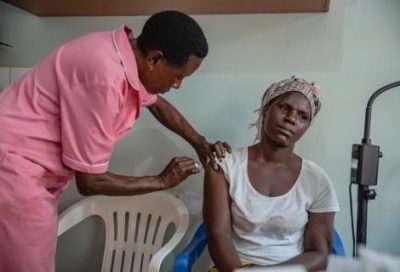IMF “Economic Medicine” Contributes to Health Crisis in Africa: Shortage of Health Workers

As I have told my friends for many years, the International Monetary Fund (IMF) is incapable of helping nations grow their economies. I do not believe the IMF can point to any success story, where its policies led to improving the standard of living of the population. Their macro-monetarist ideology fails to understand the essential driver of real (not monetary) growth. Following IMF prescriptions usually results in more suffering for the victim nation. For a more in depth analysis read my article from last year: Africa Needs Real Economic Growth, Not IMF Accountants.
The report cited by the ActionAid and Public Service International highlights the failure of the IMF: IMF Told Countries Facing Critical Health Worker Shortages to Cut Public Sector Wages. The statistics are revealing, but should not be shocking to those of us who study physical economics. Throughout its history we have seen the IMF insist on cuts to meet to macro-economic goal at the expense of the population. This report clearly pinpoints the effects of tying loans to cuts back in healthcare. Africa was suffering from an acute shortage of healthcare workers before the COVID-19 pandemic. Sub-Saharan Africa has the fewest physicians per 1,000 population and the lowest number of hospital beds per 1,000 population.
It was pointed out by Ethiopian Prime Minister, Abiy Ahmed, earlier this year, that payments of debt service equaled or surpassed the amount of money nations spent on healthcare. He wrote “In 2019, 64 countries, nearly half of them in sub-Saharan Africa, spent more on servicing external debt than on health. Ethiopia spends twice as much on paying off external debt as on health.
African nations, or any country for that matter, should not be subjected to this kind of treatment. Human life is real and precious. Debt is merely a financial accounting mechanism. There is no equivalence.
The COVID-19 pandemic has revealed the failure of the world globalized financial system, which has been become decoupled from the real economy. Genuine economic growth uses credit to promote human life. President Franklin Roosevelt’s Bretton Woods system, in its perverted form, came to an end on August 15, 1971. For the last fifty years, the City of London-Wall Street centered financial system has become more corrupt each decade, serving the interest of a tiny few. Now is the time to launch a New Bretton Woods, dedicated to improve the conditions of life for all people of all nations. I will be writing more on this subject in the future.
Below are excerpts from the cited report:
“New analysis by ActionAid and Public Services International (PSI) reveals how International Monetary Fund (IMF) austerity policies restricted critical public employment in the lead up to the Covid-19 crisis. (emphassis added)
“The analysis, released to mark UN Public Service Day (23 June), shows that every single low income country which received IMF advice to cut or freeze public employment in the past three years had already been identified by the World Health Organisation (WHO) as facing a critical health worker shortage.
“Key findings include:
- Of the 57 countries last identified by the WHO as facing critical health worker shortages, 24 received advice from the IMF to cut or freeze public sector wages.
- When countries are told to contain wage bills – it means fewer doctors, nurses and frontline workers in countries already desperately short of medics.
- All but one of the 18 low-income countries advised by the IMF to cut or freeze public sector employment funding, are currently below the WHO’s recommended nurse-to-population threshold of 30 per 10,000.
- The WHO predicts that these countries will experience a collective shortage of at least 695,000 nurses by 2030.
“ActionAid’s 2020 report Who Cares for the Future: Finance Gender-responsive Public Services exposed the detrimental IMF loan conditions and austerity measures which have pushed 78% of low-income countries to plan for zero increase in public sector wages.
“When countries are told to contain wage bills it means fewer doctors, nurses and front line health workers in countries already desperately short of medics. This was a dangerous practice even before the Covid-19 pandemic and is unthinkable now.”
Read the full report: IMF Told Countries Facing Critical Health Worker Shortages to Cut Public Sector Wages
*
Note to readers: please click the share buttons above or below. Forward this article to your email lists. Crosspost on your blog site, internet forums. etc.
This article was originally published on the author’s blog site, Africa and the World.
Lawrence Freeman is a Political-Economic Analyst for Africa, who has been involved in the economic development policy of Africa for 30 years. He is the creator of the blog: lawrencefreemanafricaandtheworld.com
Featured image is from Africa and the World

